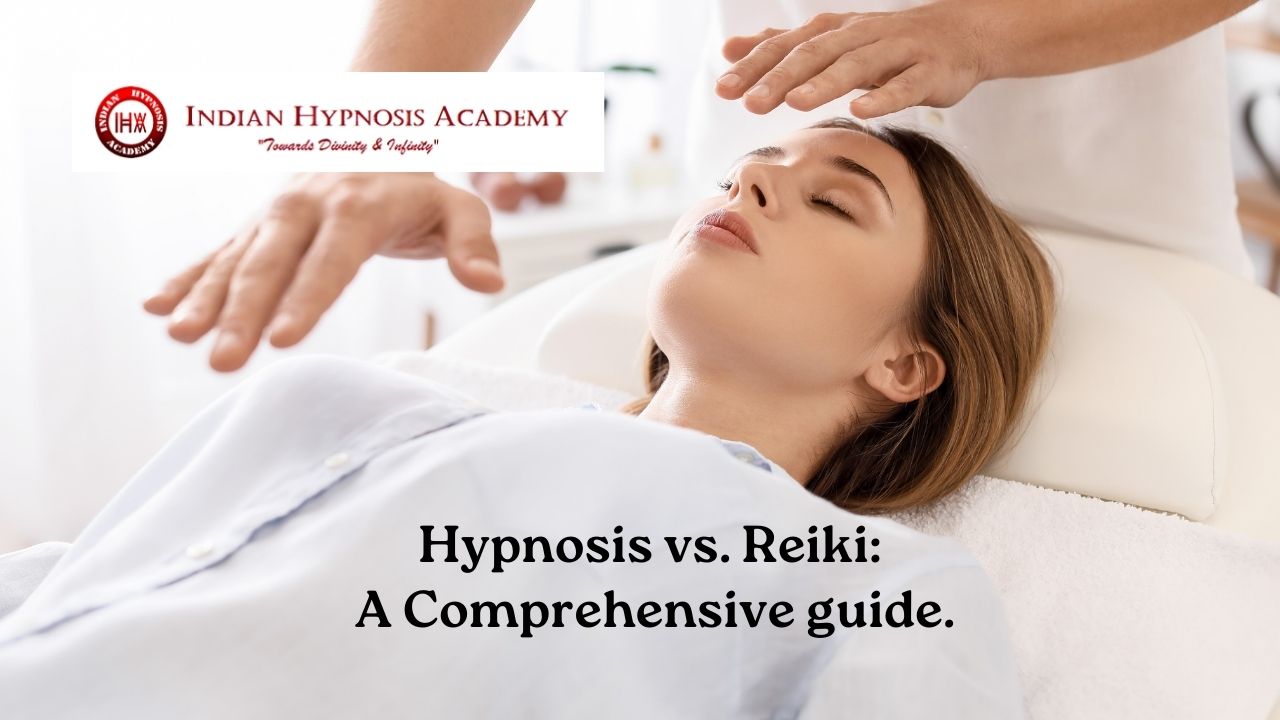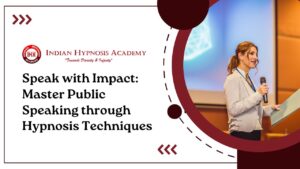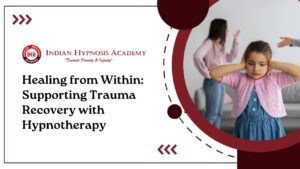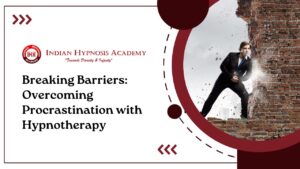Introduction to Hypnosis and Reiki
Are you looking to unlock the power of your mind and tap into the energy of the universe for healing and transformation? In this comprehensive guide, we will explore two fascinating modalities that offer profound benefits for mental health and well-being: Hypnosis and Reiki. Join us on a journey to discover the similarities, differences, and synergies between these ancient practices as we delve into how they work their magic on our minds and bodies. Whether you’re a skeptic or a believer, get ready to open your mind to the possibilities that await with Hypnosis and Reiki!
What is Hypnosis?
Have you ever been intrigued by the mysterious world of hypnosis? Let’s dive in to understand this fascinating practice.
Hypnosis is a state of focused attention and heightened suggestibility, often induced by a trained hypnotherapist. Contrary to popular belief, it’s not about losing control or being unconscious; instead, it taps into the power of your subconscious mind.
During a hypnosis session, you enter a relaxed state where your mind is more receptive to positive suggestions. This can help address various issues like anxiety, phobias, and even habits like smoking or overeating.
The process involves guiding you into a trance-like state where your conscious mind takes a back seat, allowing deeper exploration of underlying beliefs and emotions. It’s all about harnessing the power of your own mind to bring about positive change.
Intriguing, isn’t it? Stay tuned as we explore more about the world of hypnosis and its benefits!
What is Reiki?
Reiki is a form of energy healing that originated in Japan. It involves the practitioner channeling universal life force energy to promote balance and well-being in the recipient. During a Reiki session, the practitioner places their hands lightly on or just above the client’s body, allowing the energy to flow through them.
The word Reiki is derived from two Japanese words: “rei,” which means universal, and “ki,” which means life force energy. Together, they represent the concept of spiritually guided life force energy. This gentle and non-invasive technique aims to clear blockages in the body’s energy pathways, promoting relaxation, stress reduction, and overall healing.
Reiki is based on the belief that we all have an innate ability to heal ourselves. By tapping into this universal life force energy, practitioners can help facilitate physical, emotional, mental, and spiritual healing for their clients. Each Reiki session is unique and may bring about different sensations or experiences for each individual receiving it.
The Similarities between Hypnosis and Reiki
Both hypnosis and Reiki share common ground when it comes to promoting relaxation and reducing stress. They both tap into the body’s natural ability to heal itself, albeit through different mechanisms. In both practices, the client plays an active role in their own healing process by being open to the therapeutic suggestions or energy flow.
Moreover, both Hypnosis and Reiki can help individuals access a state of deep relaxation where they can release negative emotions and blockages that may be affecting their well-being. Through these modalities, practitioners aim to restore balance and harmony within the mind, body, and spirit.
Additionally, both Hypnosis and Reiki have been found beneficial in managing pain, improving sleep quality, boosting self-confidence, and enhancing overall mental health. By addressing underlying issues at a subconscious level or facilitating energy flow throughout the body’s chakras, they offer holistic approaches to wellness.
The Differences between Hypnosis and Reiki
When it comes to hypnosis and Reiki, there are distinct differences that set them apart in their approach and techniques. Hypnosis involves guiding someone into a deep state of relaxation where they are more open to suggestion, while Reiki focuses on channeling universal energy to promote healing.
In hypnosis, the practitioner typically uses verbal cues and imagery to help the client achieve their desired outcome or address specific issues. On the other hand, Reiki practitioners use gentle touch or simply hover their hands over the body to transfer energy and balance the chakras.
Another key difference is that hypnosis is often used for behavioral changes, breaking habits, or addressing subconscious beliefs. In contrast, Reiki is primarily focused on promoting overall well-being, reducing stress, and supporting physical healing processes.
While both modalities can be powerful tools for self-improvement and healing, understanding these differences can help individuals choose the right approach based on their unique needs and goals.
How They Work: Understanding the Science behind Hypnosis and Reiki
Have you ever wondered how hypnosis and Reiki actually work? Let’s dive into the science behind these fascinating practices.
Hypnosis is believed to tap into the power of suggestion, influencing the subconscious mind to create positive changes. By guiding individuals into a deeply relaxed state, hypnotists can bypass critical thinking and access the inner workings of the mind.
On the other hand, Reiki works on the principle of energy flow. Practitioners believe they can channel universal life force energy through their hands to promote healing and balance within the recipient’s body, mind, and spirit.
While hypnosis focuses on reprogramming thought patterns and behaviors at a subconscious level, Reiki aims to remove energetic blockages that may be causing physical or emotional distress.
Both modalities offer unique pathways to wellness by addressing different aspects of our being: mental, emotional, physical, and spiritual.
Benefits of Hypnosis and Reiki for Mental Health
Are you looking for natural ways to improve your mental health and well-being? Both hypnosis and Reiki offer unique benefits that can help alleviate stress, anxiety, and other mental health issues.
Hypnosis can help reprogram negative thought patterns and behaviors, promoting relaxation and reducing symptoms of anxiety and depression. It can also enhance self-awareness and promote a sense of inner peace.
On the other hand, Reiki is a gentle energy healing technique that promotes balance and harmony within the mind, body, and spirit. It can help release emotional blockages, reduce stress levels, and promote feelings of calmness.
Both hypnosis and Reiki provide holistic approaches to mental health care without the use of medication or invasive procedures. They focus on addressing underlying issues rather than just treating symptoms.
By incorporating hypnosis or Reiki into your self-care routine, you may experience improved mental clarity, increased emotional resilience, and a greater sense of overall well-being.
Using Hypnosis and Reiki Together: A Powerful Combination
Combining hypnosis and Reiki can create a powerful synergy that addresses both the conscious and subconscious levels of the mind. Hypnosis dives deep into the subconscious to reframe thoughts and beliefs, while Reiki works on balancing energy flow throughout the body.
During a session that combines these two modalities, you may experience a profound sense of relaxation and heightened receptivity to positive suggestions. The calming effect of Reiki can enhance the hypnotic state, making it easier to access and work through underlying issues.
The combination of hypnosis and Reiki can amplify healing effects, promoting emotional well-being and inner peace. By integrating these techniques, you may uncover deeper insights into your mental patterns and energy blockages.
Whether you are seeking personal growth, stress relief, or spiritual alignment, using hypnosis and Reiki together offers a holistic approach to self-discovery and transformation.
Choosing the Right Practitioner for You
When it comes to choosing the right practitioner for hypnosis or Reiki, trust your instincts. Research their qualifications and experience. Look for reviews or testimonials from previous clients to get an idea of their reputation.
Consider what you’re looking to achieve through hypnosis or Reiki and find a practitioner who specializes in that area. It’s important to feel comfortable and safe with the person guiding you through the process.
Don’t be afraid to ask questions during a consultation to ensure they are a good fit for your needs. A skilled practitioner will be able to provide clarity on how they can help you reach your goals.
Remember that finding the right practitioner is a personal journey. Take your time exploring different options until you find someone who resonates with you and makes you feel supported on your healing journey.
Conclusion
As you can see, both hypnosis and Reiki offer unique approaches to improving mental health and overall well-being. Whether you choose hypnosis to tap into the power of your subconscious mind or Reiki to balance your energy fields, both modalities have shown promising results for many individuals.
When deciding between hypnosis and Reiki, it’s essential to consider your personal preferences and goals. Some may find hypnosis more effective in addressing specific issues, while others may resonate more with the gentle energy healing of Reiki. The best approach is the one that feels right for you.
Whichever modality you choose, working with a skilled practitioner who understands your needs and tailors their approach accordingly is crucial for achieving optimal results. By combining the power of hypnosis and Reiki or exploring them individually, you can embark on a transformative journey towards better mental health and inner harmony.
Remember that everyone’s experience with hypnosis and Reiki is unique, so trust your intuition when selecting a practitioner or deciding which modality resonates most with you. Embrace this opportunity for self-discovery and growth as you harness the incredible potential these practices hold for enhancing your well-being.




